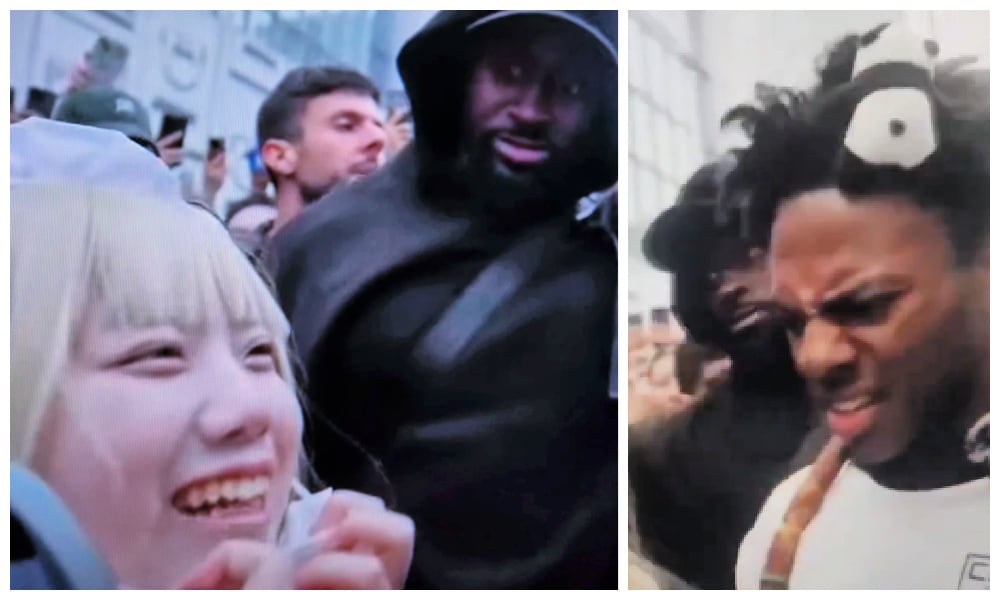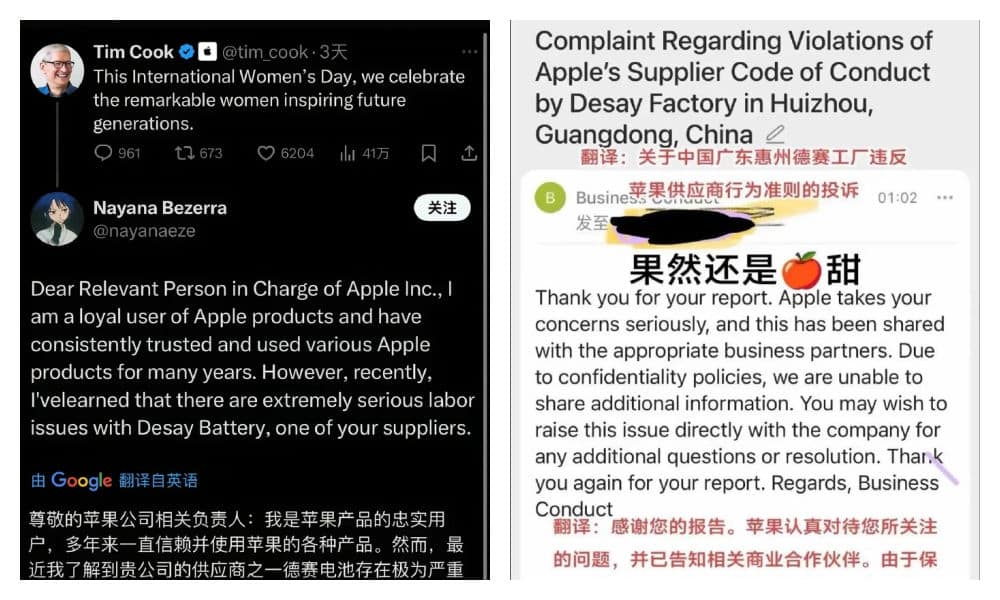The Olympic Games are in full swing and Chinese social media users are building on their meme collections as online discussions are getting more intense on Weibo – especially when it comes to competitions between China and Japan.
Japanese athlete Daiki Hashimoto (橋本 大輝) won the gold for men’s gymnastics individual all-around on the sixth day of the Tokyo Olympics. China’s Xiao Ruoteng (肖若腾), who had been leading the competition in the first five rotations, claimed the silver medal after the team’s inquiry over his score of 14.066 in the last rotation was rejected.
Online discussions arose as videos and pictures of Hashimoto’s landing pose in the vaulting event were shared by some netizens on Weibo, questioning if Hashimoto deserves a score of 14.7 as he failed to end with a stable landing.
A video made by Shanghai Oriental Sports Daily compares the performances of the two athletes and shows how the scoring leaves people confused; the two gymnasts performed the same routine and ended in completely different poses (land firmly vs. stumble while landing and stepping out of line), yet they only had a score difference of 0.166.
Some Chinese gymnasts also posted on Weibo and hinted at the scoring controversy.
Li Xiaopeng (李小鹏), the male gymnast who currently holds 16 world titles, called the result “a pity” in a Weibo post published on July 28. He wrote: “Congratulations on the second place. The fact is not that I do not understand [the game] – it’s that I understand it all too well.”

Gymnast Chen Yibing (陈一冰), four-time world champion on still rings who himself experienced disputed scoring at the 2012 Summer Olympics, wrote: “No matter what the result is, Sun Wei and Xiao Ruoteng are perfect! Xiao Ruoteng IS the champion.”
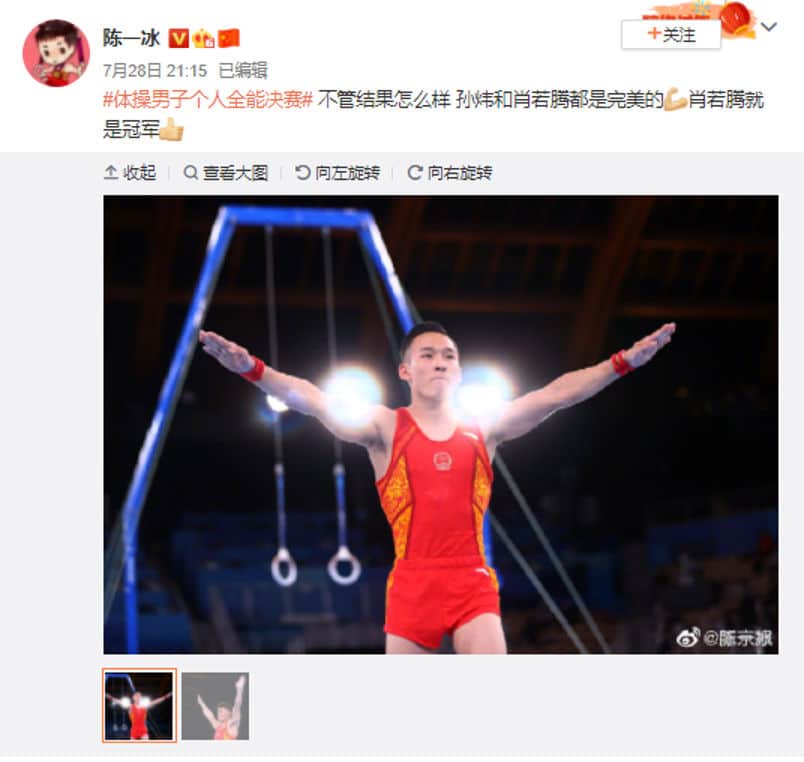
More than 10 related hashtags appeared in the top 30 of Weibo’s top search list after the competition, even though it was already late at night in China. The hashtag relating to the judges of the Olympic gymnastics (#体操裁判#) received about 640 million views.
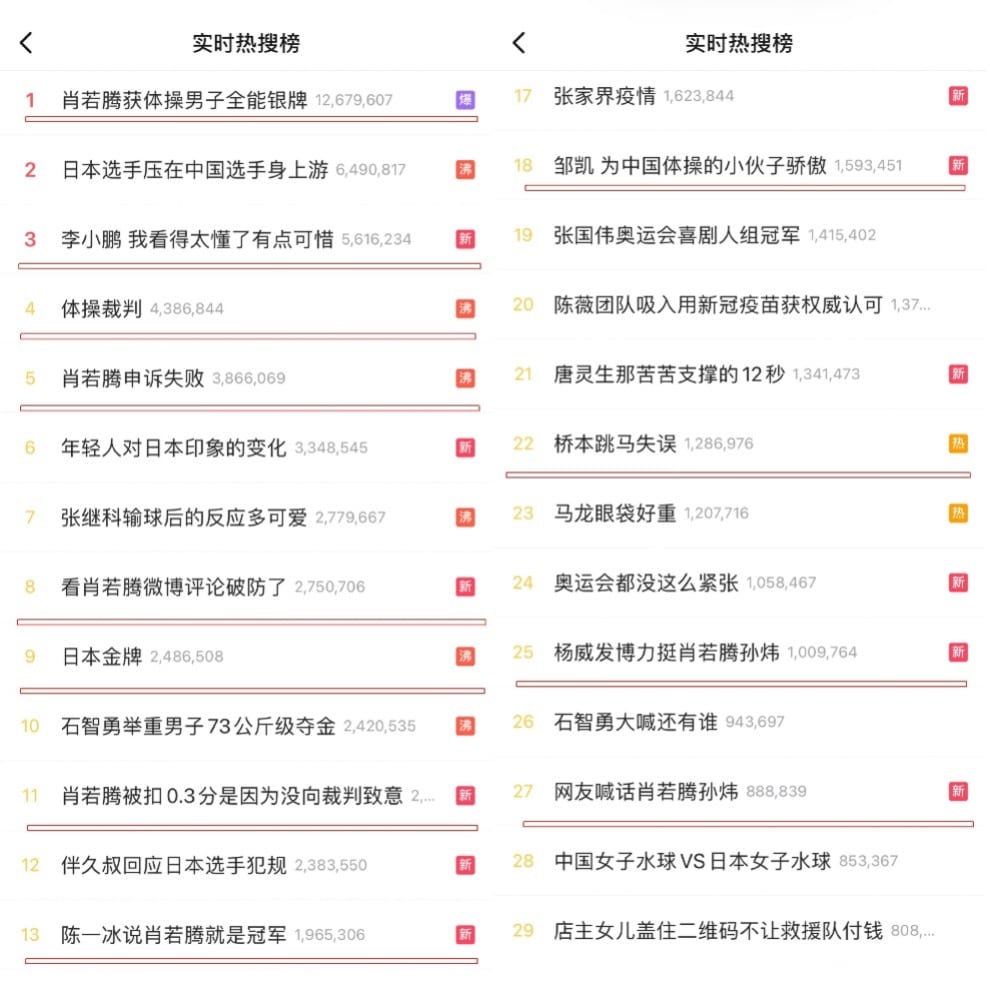
A screenshot of the Weibo’s trending list at Beijing Time 11:15 pm on July 28, showing 12 hashtags related to the competition of Men’s Gymnastics Individual All-Around.
Online discussions on the controversial gymnastics’ scoring then shifted, setting off a wave of content creation. Some memes mocking the new champion’s landing pose in the event of vault went viral on Weibo.
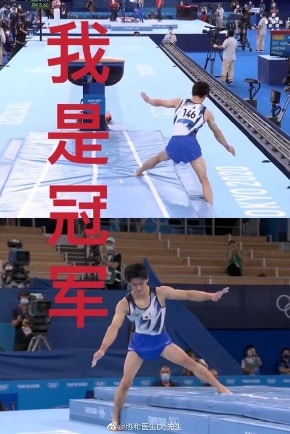
“I am the champion”
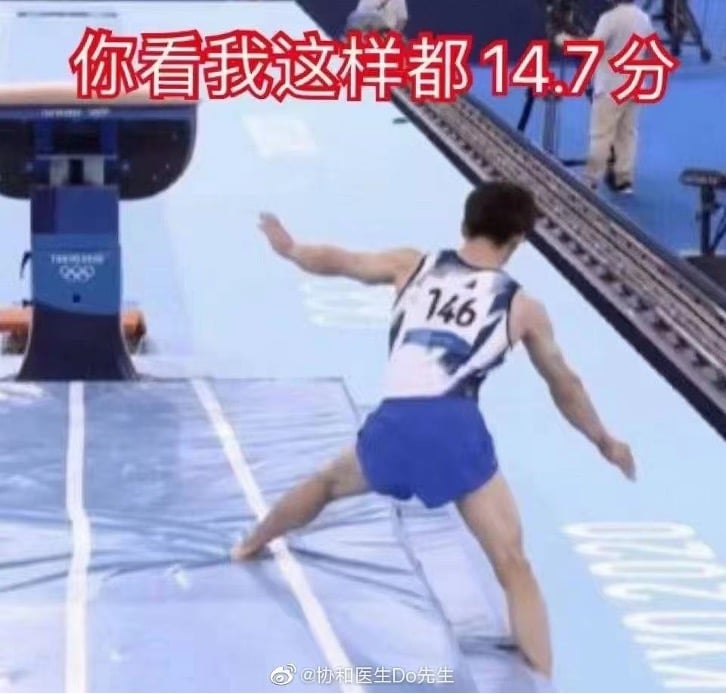
“See, I got 14.7 points with this.”
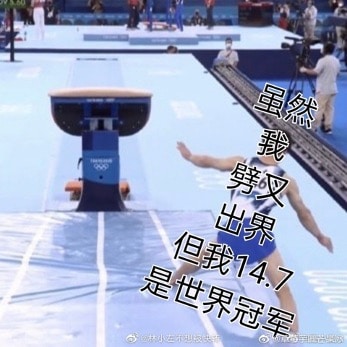
“I split, I step out of line, but I got 14.7 and I am the world champion.”

“Let me go down and pick up a gold medal.”
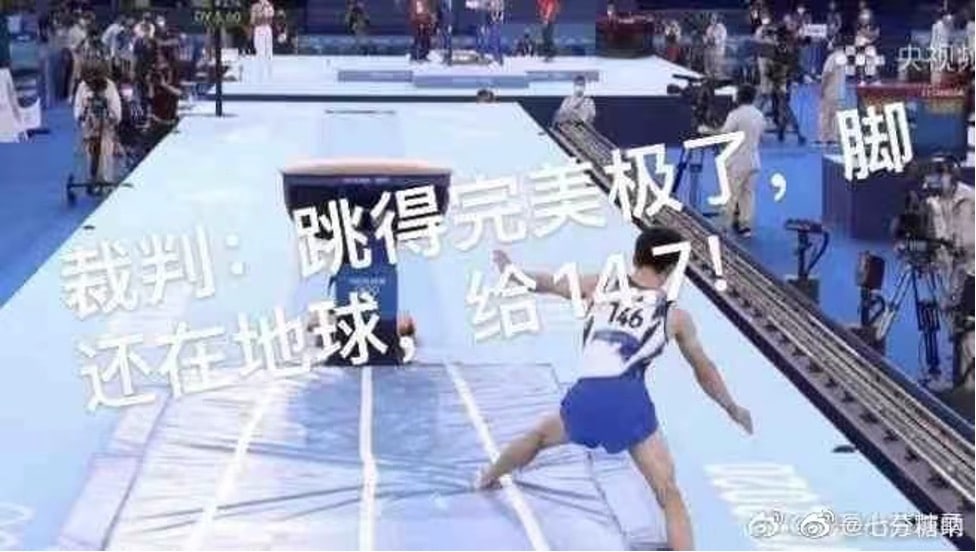
“Judge: This is perfect! The feet are still on the ground! 14.7!”
This is not the first controversy that generated heated discussions and set off a meme machine on Weibo since the Summer Olympics kicked off.
Monday’s mixed doubles table tennis final between China and Japan (Jun Mizutani/Mima Ito vs Xin Xu/Shiwen Liu) also became a major topic, especially because the Chinese players were defeated by their Japanese counterparts and won silver instead of gold. For the past 14 years, China had monopolized the gold medals in table tennis.
One moment that stood out is when Xu Xin (许昕), a Chinese professional table tennis player who is ranked world’s No. 2 for men’s singles by the International Table Tennis Federation (ITTF), entertained social media users by holding his breath immediately after he realized he was going to blow on the ping pong ball (see video here).
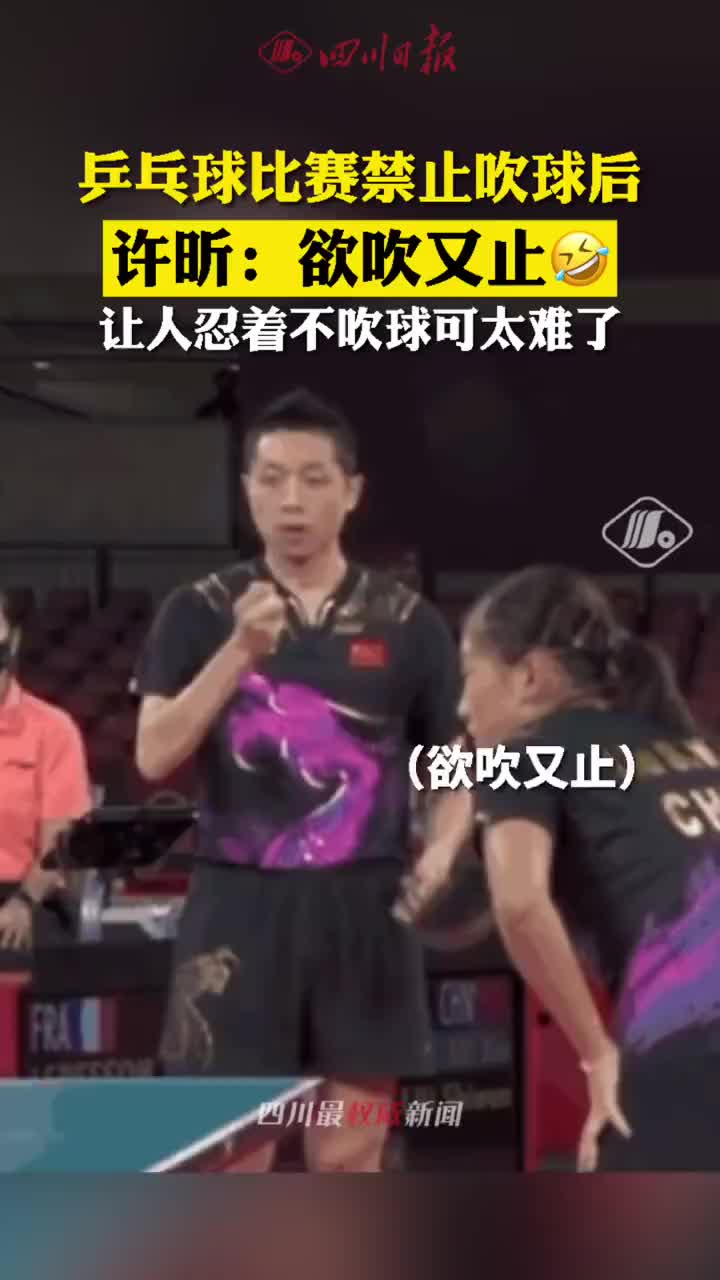
“Xu Xin Wants to Blow, Then Stops”
He did so because of the new anti-epidemic rules during the Tokyo Olympics. Some of these regulations include that players are not allowed to touch the game table with their hands and that they are not allowed to blow on the ball.
The hashtag “Xu Xin Wants to Blow, Then Stops” (#许昕欲吹又止#) that described Xu’s cautiousness went trending and generating about 450 million views on Weibo.
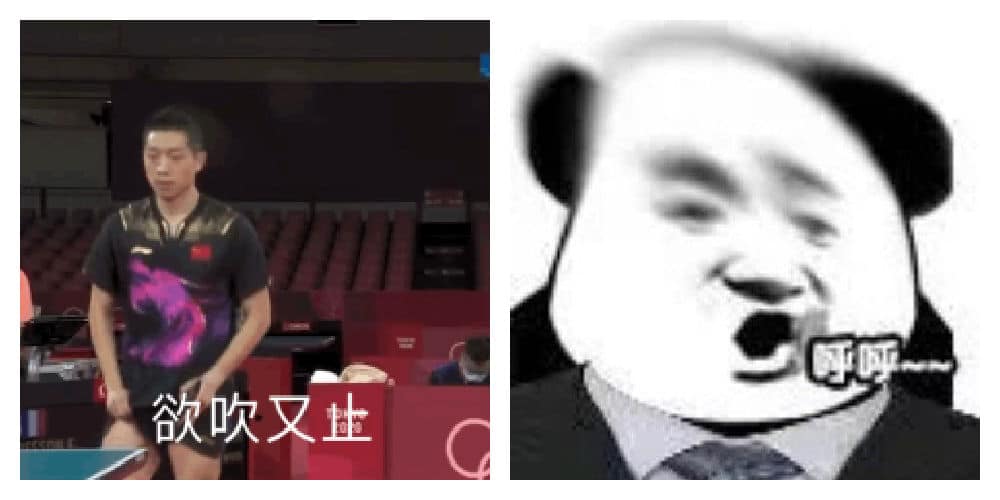
Another related hashtag is “Jun Mizutani Blows on the Ball” (#水谷隼吹球#). The hashtag is about the moment when the Japanese table tennis player blows on the ball during the event but does not receive a warning from judges (see video here). The hashtag has so far generated about 820 million views on Weibo.
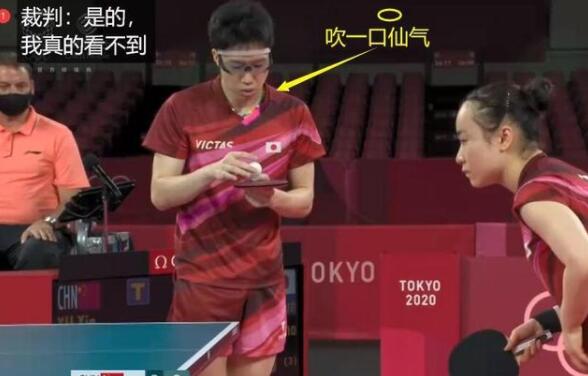
“Jun Mizutani Blows on the Ball”
Going against COVID19 regulations, Japanese table tennis player Mima Itō also touched the table several times, but the referee apparently did not notice or turned a blind eye. This also led to a Weibo hashtag page (#伊藤美诚也多次摸球桌#) and several memes.
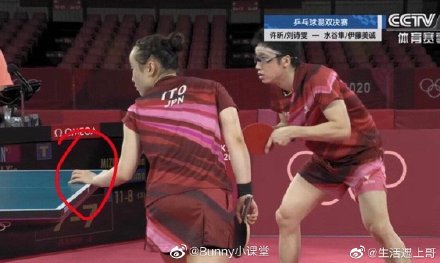
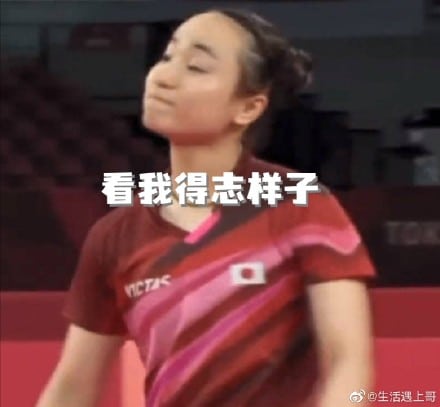
Another hashtag, “Japanese Players Swimming on the Chinese Players” (#日本选手压在中国选手身上游# ), describes another moment during the Olympics that happened during the Chinese and Japanese women’s water polo team competition on July 28, when a Chinese player was pushed underwater by a Japanese player while swimming. Some Weibo users suggested the move was dangerous and ‘could have killed’ her (see video here).
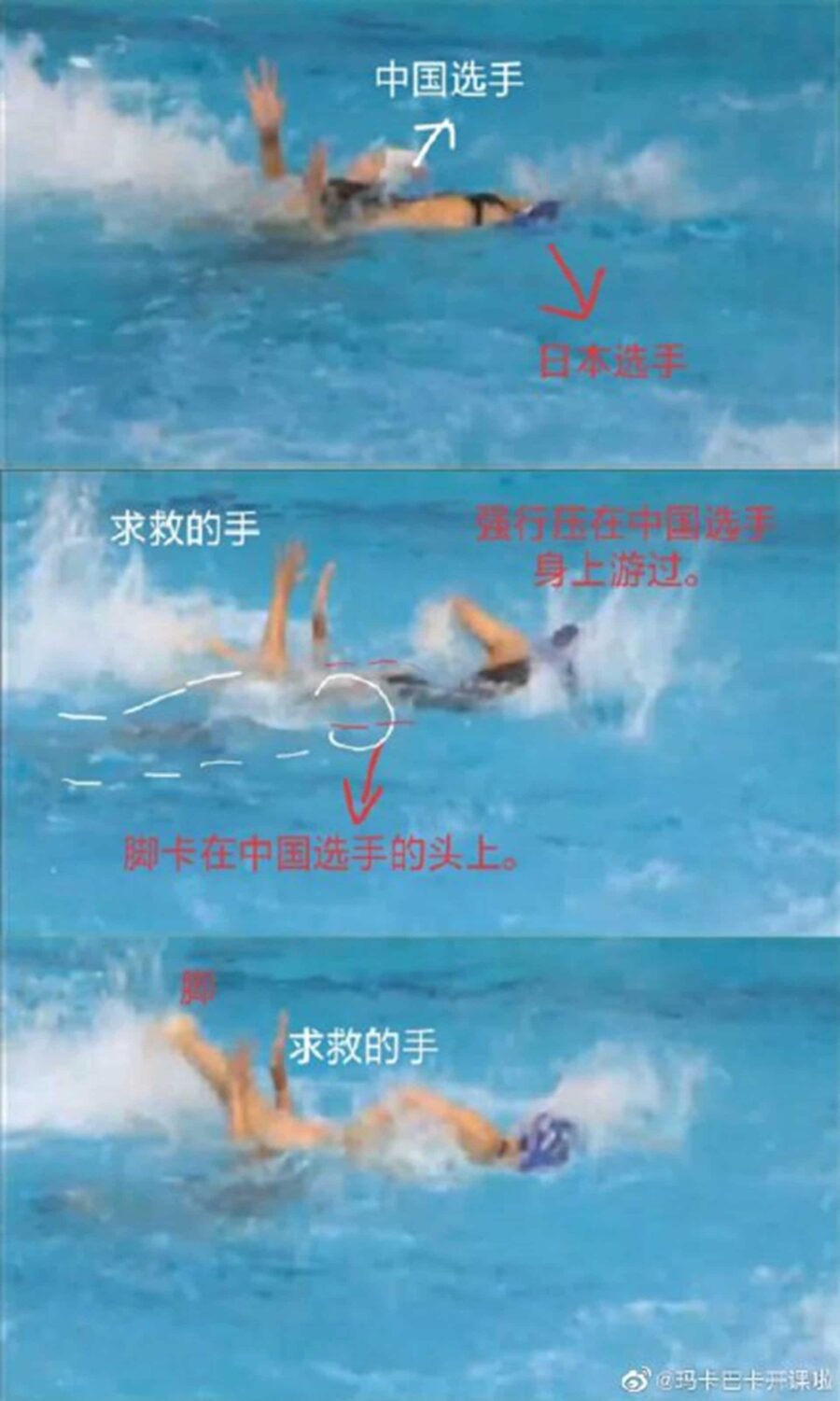

As the Games continue, the meme collections grow as online discussions are getting more intense on Weibo – especially when it comes to competitions between China and Japan.
In response to the ongoing controversies, the Central Communist Youth League of China (@共青团中央) published the video of the judges taking the Olympic oath during the opening ceremony and asked: “Have you followed your oath?”
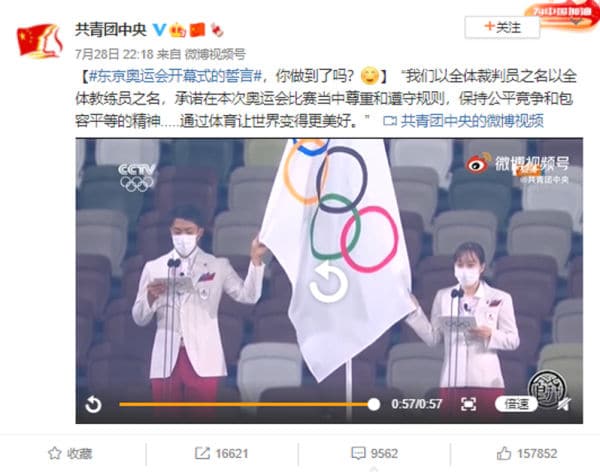
A picture of a training venue for Chinese weightlifters was widely shared on Weibo because the slogan on the wall says: “To win a clean gold medal” (#中国选手的训练场馆 拿干净金牌#).
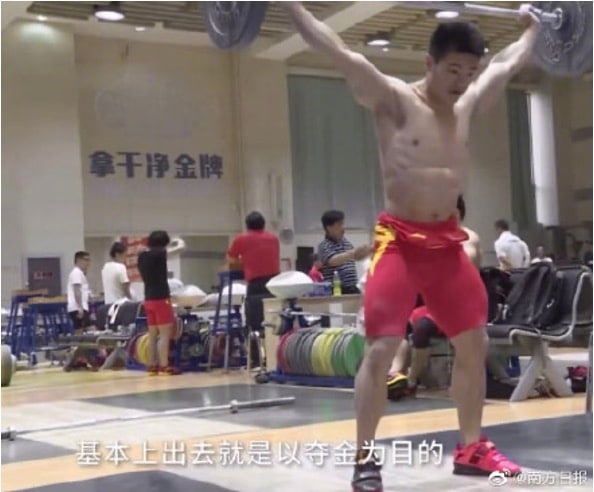
Chinese netizens applauded this principle of a ‘clean’ victory and have started to use the picture to call for fewer tricks during the rest of the Olympic competitions.
By Wendy Huang
Spotted a mistake or want to add something? Please let us know in comments below or email us. Please note that your comment below will need to be manually approved if you’re a first-time poster here.
©2021 Whatsonweibo. All rights reserved. Do not reproduce our content without permission – you can contact us at info@whatsonweibo.com


 China Insight11 months ago
China Insight11 months ago
 China Digital10 months ago
China Digital10 months ago
 China Arts & Entertainment11 months ago
China Arts & Entertainment11 months ago
 China Arts & Entertainment12 months ago
China Arts & Entertainment12 months ago
























